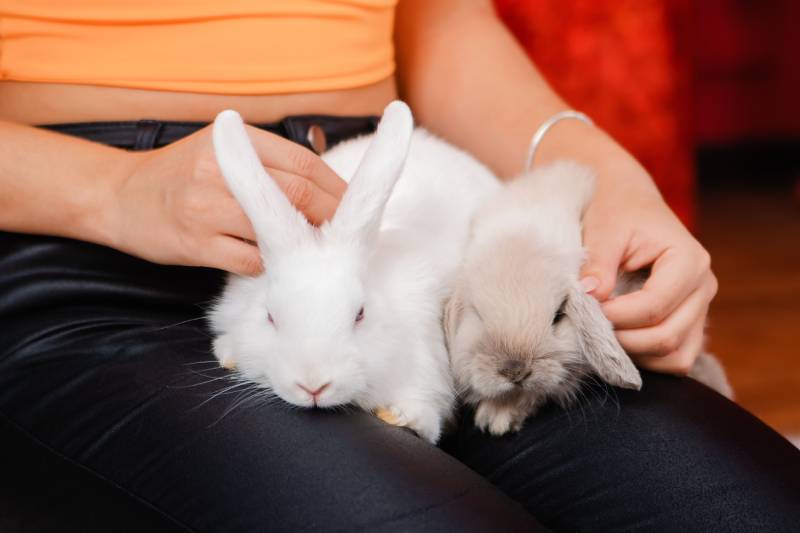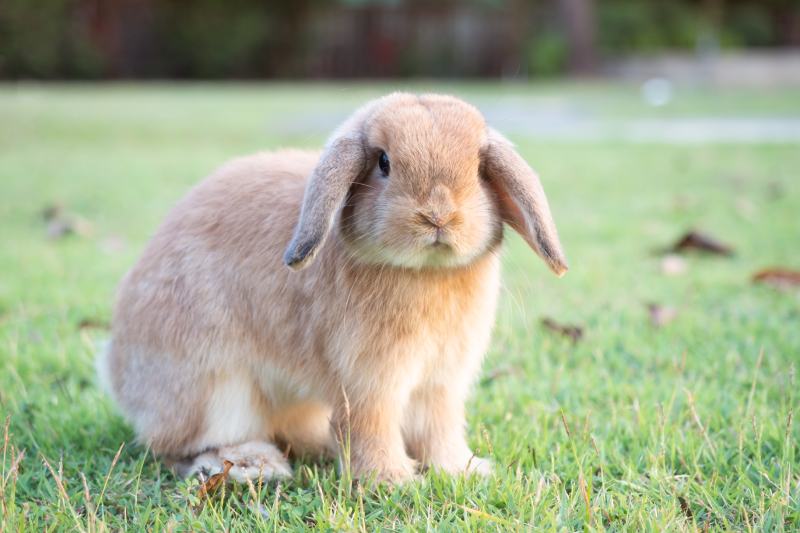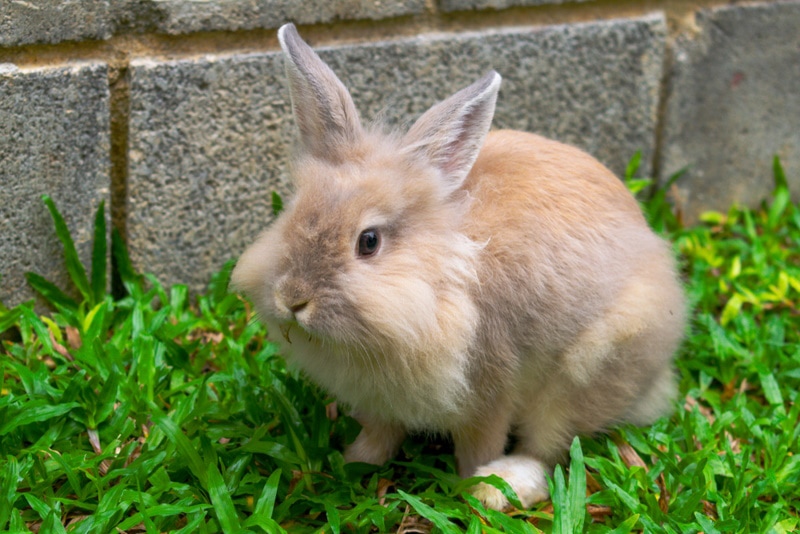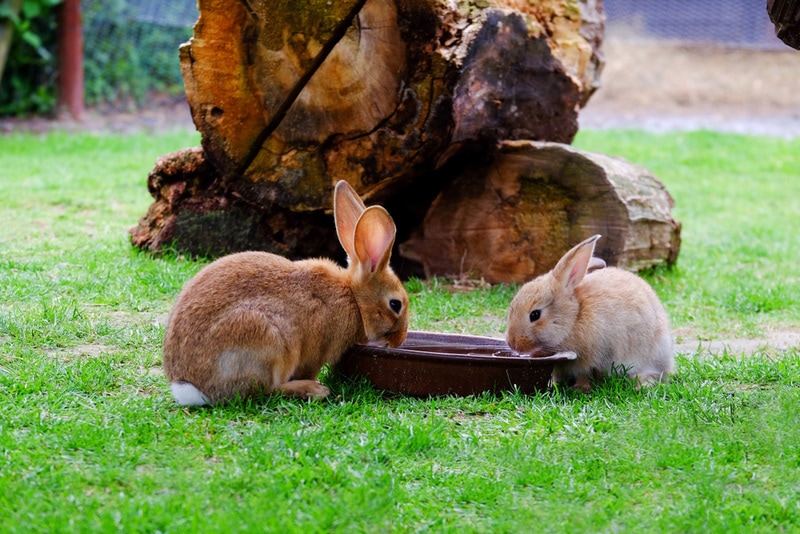Why Does My Rabbit Follow Me? 12 Likely Reasons

Updated on
Rabbits are fascinating creatures, and as pets, they can exhibit some interesting behaviors. One such behavior that many rabbit owners notice is their furry friends following them around. In this article, we’re going to delve into the world of rabbit behavior and explore the likely reasons why your pet rabbit may follow you everywhere you go.

The 12 Likely Reasons Why Your Rabbit Follows You
1. Curiosity
Rabbits are naturally curious animals. They love to explore their surroundings and investigate new things. When your rabbit follows you, it may simply be trying to satisfy its curiosity about what you’re doing or where you’re going.
Keep an eye out for signs that your rabbit is curious about you or its environment, such as sniffing, nudging, or digging. These behaviors can indicate that your rabbit is interested in learning more about its surroundings.
Encourage your rabbit’s curiosity by providing toys and enrichment activities to keep them engaged and entertained. This can also help to prevent boredom and promote mental stimulation.
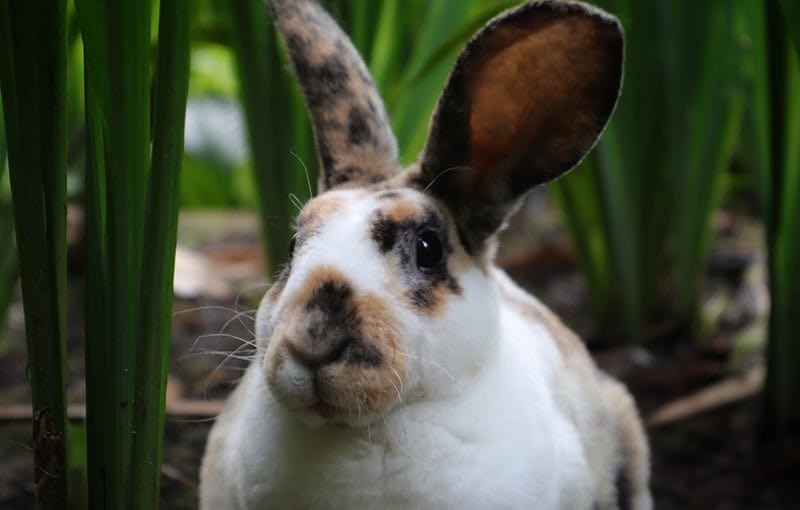
2. Bonding
Rabbits are social animals and often form strong bonds with their human caretakers. Following you around could be a sign of affection, as your rabbit wants to be close to you and spend time with you. If your rabbit frequently seeks out your company, snuggles with you, or grooms you, they likely feel a strong bond with you. This is a positive sign of a healthy and happy relationship with your pet.
Strengthen your bond with your rabbit by spending quality time together, grooming, and playing with them. This will help to develop trust and emotional connection between you and your pet.
3. Seeking Attention
Just like dogs and cats, rabbits can crave attention from their owners. If your rabbit follows you around, it could be trying to get your attention for playtime, pets, or treats. If your rabbit frequently nudges you, thumps its feet, or makes noise when you’re nearby, they may also be trying to get your attention. Responding positively to these behaviors can help to reinforce your bond with your pet.
Make sure to give your rabbit plenty of attention each day to fulfill their social needs and prevent boredom. This can include petting, talking to them, or engaging in interactive play.

4. Hunger
Rabbits have a strong sense of smell and can detect food from a distance. If your rabbit follows you into the kitchen or whenever you’re handling food, it could be hoping for a snack.
Establish a regular feeding schedule for your rabbit and provide a balanced diet to keep them healthy and satisfied. This can help to prevent overeating and ensure they receive proper nutrition. Feed them at the same times each day and offer a variety of fresh vegetables and hay. This can help to manage their hunger and reduce begging behavior.
5. Security
Your rabbit may view you as a source of protection and security. If they feel threatened or scared, they might follow you around to seek comfort and safety. When your rabbit seeks security from you, respond by providing gentle pets, soothing words, or a quiet space where they can feel safe. This will help to reassure your rabbit and alleviate their anxiety.
Ensure your rabbit has a secure and comfortable living environment, and be aware of any potential stressors that could be causing them anxiety. This can include loud noises, unfamiliar people, or other pets in the home.
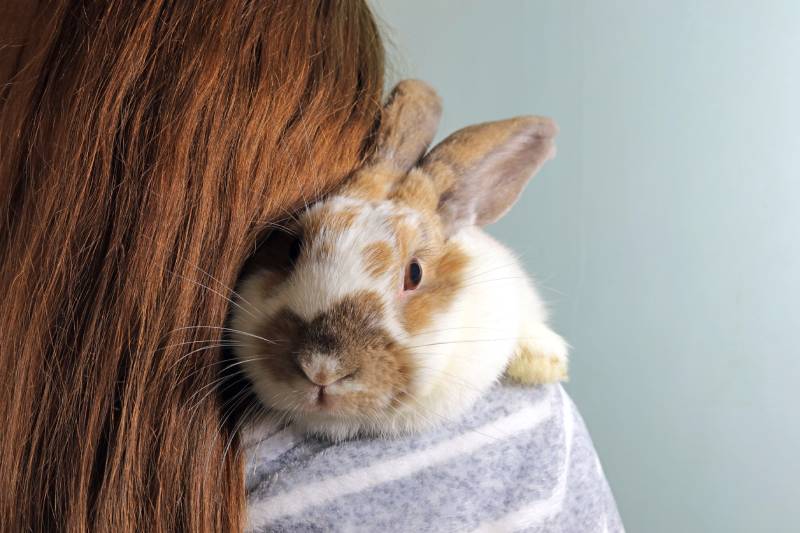
6. Habit
Some rabbits may simply develop the habit of following their owners. This behavior could become ingrained as part of their daily routine.
If your rabbit’s following behavior becomes excessive or problematic, try setting boundaries and providing alternative activities to help break the habit. This can include redirecting their attention to toys or treats.
Promote healthy habits for your rabbit by establishing routines for playtime, grooming, and feeding. This can help to prevent the development of unwanted behaviors and ensure your rabbit remains engaged and content.
7. Mimicking Other Pets
If you have other pets in the household, your rabbit may be mimicking their behavior. Rabbits are intelligent animals and can learn from observing the actions of their fellow furry companions.
Ensure all your pets have a harmonious living environment and provide opportunities for positive interactions between them. This can help to promote socialization and reduce any potential conflicts. Create a safe space where your rabbit and other pets can interact and play together. Supervise these interactions to ensure that all pets are getting along and behaving appropriately.

8. Territory Marking
Rabbits are territorial animals and may follow you to mark their territory with their scent glands. By doing so, they’re essentially claiming you as part of their territory.
Regularly clean your rabbit’s living space and provide them with their own designated area to help them feel secure in their territory. This can help to reduce territorial behaviors and promote a sense of ownership over their space.
9. Exercise
Rabbits require daily exercise to maintain their health and well-being. Following you around may be your rabbit’s way of getting some much-needed physical activity. Provide ample space for your rabbit to roam and play, as well as toys and activities to keep them entertained and active. This can help to promote physical fitness and prevent obesity.

10. Seeking Warmth
Rabbits are sensitive to temperature changes and may follow you to seek warmth, especially during colder months. Watch for signs that your rabbit may be cold, such as shivering, lethargy, or huddling up.
Monitor your home’s temperature and provide your rabbit with a cozy and warm living environment. This can include offering soft bedding, blankets, or heated pads for them to snuggle up with.
11. Breeding Behavior
If your rabbit is not spayed or neutered, following you could be a sign of breeding behavior. Unaltered rabbits may exhibit more territorial and attention-seeking behaviors.
Consider spaying or neutering your rabbit to reduce hormonal-driven behaviors and improve their overall health. This procedure can also help to prevent overpopulation and reduce the risk of certain health issues.
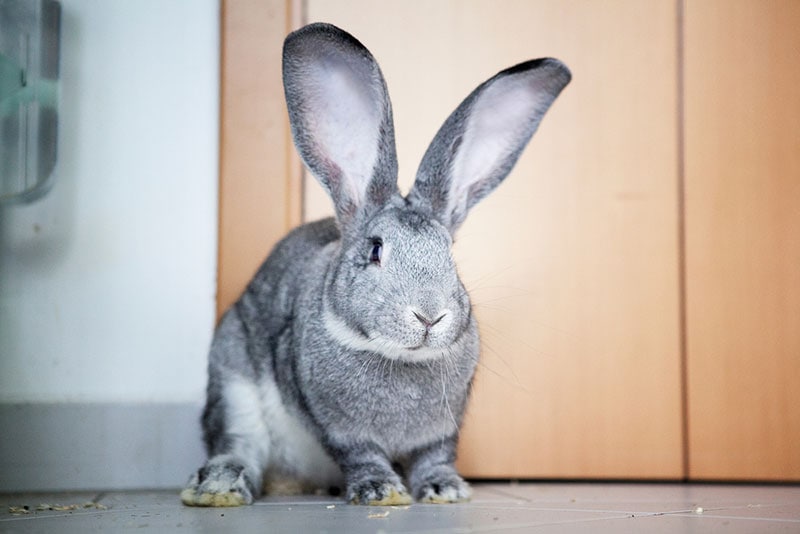
12. Health Issues
In some cases, a rabbit following its owner could be indicative of an underlying health issue. For example, a rabbit with vision problems may rely on following you to navigate their environment. Schedule regular vet check-ups for your rabbit to monitor their health and address any concerns. This can help to identify any potential health issues early and provide appropriate treatment.
Also pay close attention to your rabbit’s behaviors, appearance, and overall well-being. If you notice any changes or signs of illness, consult with your veterinarian immediately.

Conclusion
Rabbits are complex creatures with unique personalities and behaviors. Understanding the reasons behind why your rabbit follows you can help deepen your bond and ensure their well-being. By providing a safe, engaging, and loving environment, you’ll have a happy and healthy pet rabbit that enjoys spending time with you.
Featured Image Credit by Mihail Guta, Shutterstock
